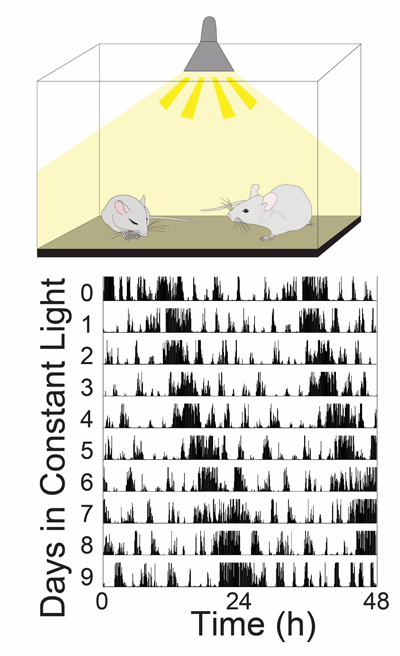Circadian disruption of glymphatic function

Mice in constant light have a circadian free-running period of ~25h, as seen in this double-plotted actogram of cage activity
If you have ever experienced jetlag or done shiftwork, you know the difficulties of having to function in society when your brain refuses to think and your body is telling you to sleep or to eat that snack. Disruptions of circadian rhythms either acutely (jetlag) or chronically (shiftwork) is associated increased risk of inflammatory, cardiometabolic, and neurodegenerative diseases. Our research uses environmental manipulation and genetic mouse models of circadian timing to ask 1) how does chrono-disruption alter glymphatic function and 2) if we increase glymphatic function can we reduce pathology associated with chrono-disruption.